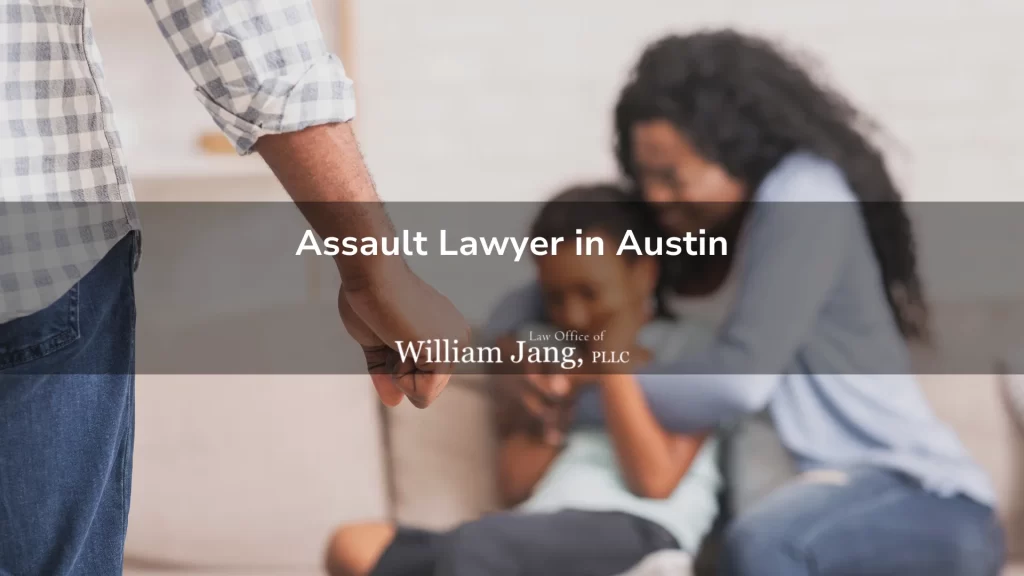
Assault in Texas is generally considered a class A misdemeanor. Still, the offense could get upgraded to a third-degree felony or downgraded to a class C misdemeanor in some cases, depending on the victim and the surrounding circumstances. For example, assaulting a pregnant person, public servant, government official, firefighter, or security officer can upgrade a class A misdemeanor to a third-degree felony. Whereas simply engaging in unwanted physical touching or issuing a threat might only be prosecuted as a class C misdemeanor.
Regardless of the details, if you’ve been accused of assault, you need a strong legal defense team to protect your rights and ensure your voice is heard in court. At Law Office of William Jang, PLLC, we understand the gravity of assault charges and the impact they can have on your life. Our experienced criminal defense lawyers will fight tirelessly on your behalf, working to uncover evidence and build a strong defense strategy that puts you in the best possible position. We know every case is unique, so we will work closely with you to understand your situation and craft a customized defense that meets your needs. See our office on Google Maps and read our client reviews to learn more about their experiences.
Contact Law Office of William Jang, PLLC today by calling (512) 323-2333 or filling out our online contact form for a confidential consultation and take the first steps toward protecting your future.
What Are the Different Types of Assault in Texas?
According to the Texas Penal Code, the definition of an assault is when a person “intentionally, knowingly, or recklessly” causes bodily injury to another person, intentionally or knowingly threatens to cause another person harm, or deliberately or knowingly contacts another person in a provocative or offensive manner without their consent. This includes taking any of these actions against a spouse.
The different types of assault in Texas include the following:
- Sexual assault
- Indecent assault
- Aggravated assault
- Aggravated sexual assault
- Injury to a child, elderly individual, or disabled individual
- Abandoning or endangering a child
- Deadly conduct
- Terroristic threats
- Aiding suicide attempts
- Tampering with consumer products
- Leaving children unattended in vehicles
- Harassment of facility workers or public officials
One of the main distinctions in Texas assault law is between acts of simple and aggravated assault. Simple assault is usually a class C misdemeanor. Still, a simple assault could be upgraded to a class B or even a class A misdemeanor if the victim is a sports player, coach, referee, or instructor or if they are an elderly or disabled person. The penalties for a conviction on simple assault charges can range from a $500 fine without jail time to a $4,000 fine and one year in jail. Simple assault could even result in felony charges if the victim is a family member, dating partner, or household member. If the victim is a court judge or police officer, the charge will most likely become a second-degree felony, which is punishable by up to 20 years in prison and a $10,000 fine.
Aggravated assault is similar in virtually every way to simple assault, except for the fact that an aggravated assault results in severe bodily harm to the victim. Aggravated assault can also occur when someone commits a simple assault while using or displaying a deadly weapon. The penalties for committing this type of assault are severe. If you are facing simple or aggravated assault charges in Texas, defining what type of assault actually occurred is a vital part of building a successful defense case. The attorneys at Law Office of William Jang, PLLC can help you by investigating your case’s circumstances, gathering valuable evidence, and crafting intelligent legal solutions.
Assault Prosecution and Defense Tactics

According to the Texas Penal Code, consent is a legitimate form of defense for an alleged assaultive act. Suppose a victim effectively consents to another person’s contact, or it is reasonably believed that the victim consented to the actor’s conduct, such as in a mutual sparring match. This is grounds for a legitimate defense against the charge of assault if the actor’s conduct did not threaten or inflict serious bodily harm or if the victim understood the threat posed by a specific occupation, medical treatment, or scientific experiment. However, consent is not a legitimate form of defense against assault if the offense happened as part of a ritual hazing or street gang activity.
Assault against protected groups, such as children, carries far stiffer penalties. In Texas, a child is a “person 14 years of age or younger.” An elderly individual is “a person 65 years of age or older,” and a disabled individual is a person with one or more of the following:
- Autism spectrum disorder
- A developmental disability
- An intellectual disability
- Severe emotional disturbance
- A traumatic brain Injury
- Another mental illness
Prosecuting an assault charge requires gathering evidence, including eyewitness testimonies, video or audio recordings, and medical records. Defending yourself against this type of charge will require a clear and believable story that a skilled criminal defense lawyer can help you draft and effectively present to the court.
Contact an Experienced Austin Assault Lawyer
Due to the many variables associated with assault cases in Texas, it is strongly advised that you seek legal representation, no matter what your role is or your level of involvement in an alleged assault. The defense lawyers at Law Office of William Jang, PLLC are here to provide you with top-notch legal advice and counsel every step of the way, from preparing and filing your case to arguing its legal merits before a judge. Our track record of success speaks for itself, and our bi-lingual team of diverse attorneys is happy to help you overcome hurdles such as language barriers and cultural differences.
At Law Office of William Jang, PLLC, our attorneys’ combined courtroom experience offers in-depth, unparalleled representation for all our clients. For a nominal fee, you can get a confidential consultation with one of our attentive and compassionate lawyers at your earliest convenience. You won’t regret contacting us. We will fight hard for you and for the justice you deserve. Don’t hesitate to call us today at (512) 323-2333 and get started on building an effective and meaningful assault defense case.










